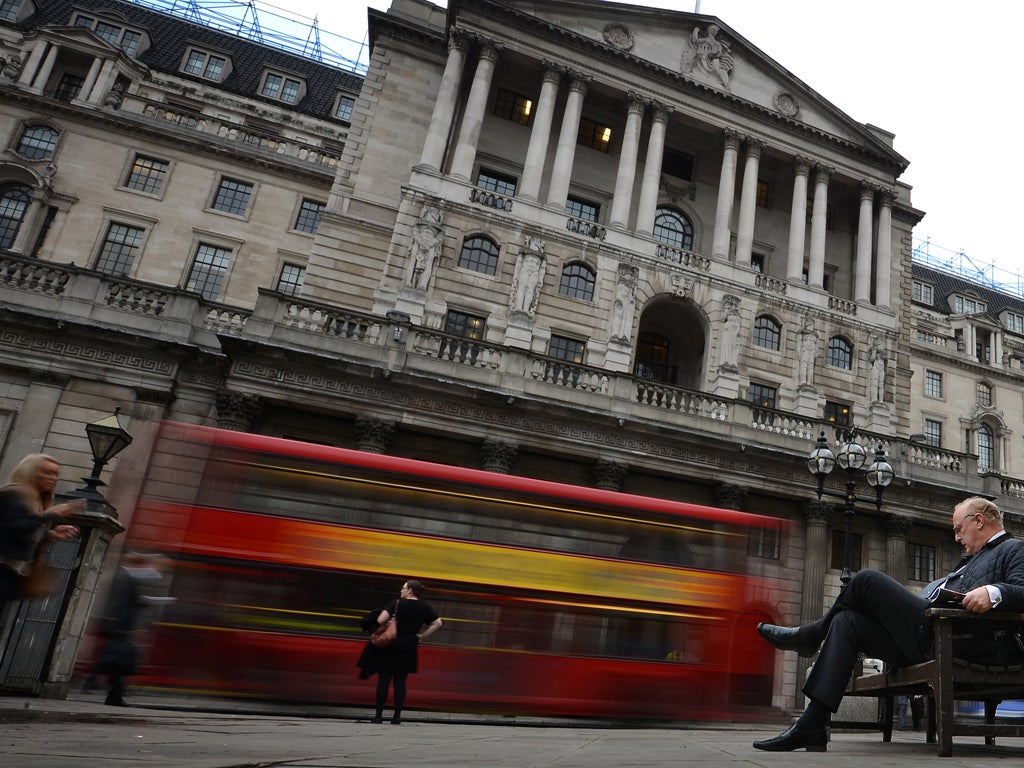The Bank of England’s Monetary Policy Committee has decided to keep interest rates on hold, despite heightened market expectations that it would cut the cost of borrowing to a new historic low of 0.25 per cent to cushion the economy in the wake of the shock Brexit referendum result.
But the Bank has also heavily hinted that a rate cut will come in August to support a weakening economy.
The nine person MPC voted by a majority of 8 to 1 to keep interest rates on hold at 0.5 per cent, where they have been since March 2009.
Futures markets had priced in a 75 per cent chance of a rate cut today.
Yet minutes from the MPC’s meeting dropped a heavy hint that a rate cut – or possibly more money printing – would come next week, saying “Most members of the Committee expect monetary policy to be loosened in August”.
Significantly, the Bank said that testimony from its network of agents around the country since the 23 June poll “suggest that some businesses are beginning to delay investment projects and postpone recruitment decisions.”
It also highlighted survey data from the housing market that points to a “significant weakening in expected activity”.
The one MPC member who voted to reduce rates by 0.25 per cent today was the most recent external appointee Gertjan Vlieghe.
In August the MPC will publish its quarterly Inflation Report, which will include the Bank’s full post-Brexit economic forecasts for inflation and GDP growth. In its last report the Bank warned that a popular vote to leave the European Union could have “material implications” for the economy. The Bank’s Governor, Mark Carney, said that a “technical recession” was a possibility.
In the wake of the referendum result Mr Carney said that some monetary easing was “likely” over the summer, which helped to calm febrile financial markets and support the value of sterling which is trading close to 31 year lows against the dollar.
“The MPC is committed to taking whatever action is needed to support growth and to return inflation to the target over the appropriate horizon” the minutes said.
Referring to Mr Vlieghe’s vote, the minutes said: “for one member, the subdued economic outlook before the referendum had already come close to warranting further stimulus”.
A majority of economists surveyed by Bloomberg expect that the UK economy will return to recession over the coming year.
In a sign that the Bank could restart its £375bn Quantitative Easing programme the minutes said that MPC members had “discussed various easing options and combinations thereof”. Some City of London economists have suggested that the Bank may extend its asset purchase scheme to include corporate bonds, rather than just UK sovereign debt known as Gilts.
10 year Gilt yields have fallen to record lows of below 0.8 per cent. The Bank said this was likely to be partly due to market “expectation of further monetary loosening”.
The Bank’s Financial Policy Committee earlier this month loosened its capital requirements for banks, saying that this could free up lenders to provide up to £150bn of additional credit to the economy.
Annual consumer price inflation was 0.3 per cent in May, well below the Bank’s 2 per cent target. The Bank said the fall in sterling would put upward pressure on inflation “although the pace at which this would happen was uncertain.”
Alan Clarke, an economist at Scotiabank, reacted angrily to the Bank decision saying that Mark Carney had once again shown himself to be an “unreliable boyfriend” to the markets.
Business news: In pictures
Show all 13“For no apparent reason, Governor Carney decided to tease the market, let it price in a high probability of a rate cut, only to disappoint. As if the situation wasn’t volatile and uncertain enough, the BoE Governor poured petrol on the flames. This was a completely unnecessary intervention” he said
Ben Brettell, senior economist at Hargreaves Lansdown also suggested the Governor had “backed himself into a corner” with his speech in the immediate aftermath of the referendum.
“So strong were his hints that looser monetary policy was on the way, that the market had come to fully expect a 25 basis point cut today” he said.
Subscribe to Independent Premium to bookmark this article
Want to bookmark your favourite articles and stories to read or reference later? Start your Independent Premium subscription today.


Join our commenting forum
Join thought-provoking conversations, follow other Independent readers and see their replies